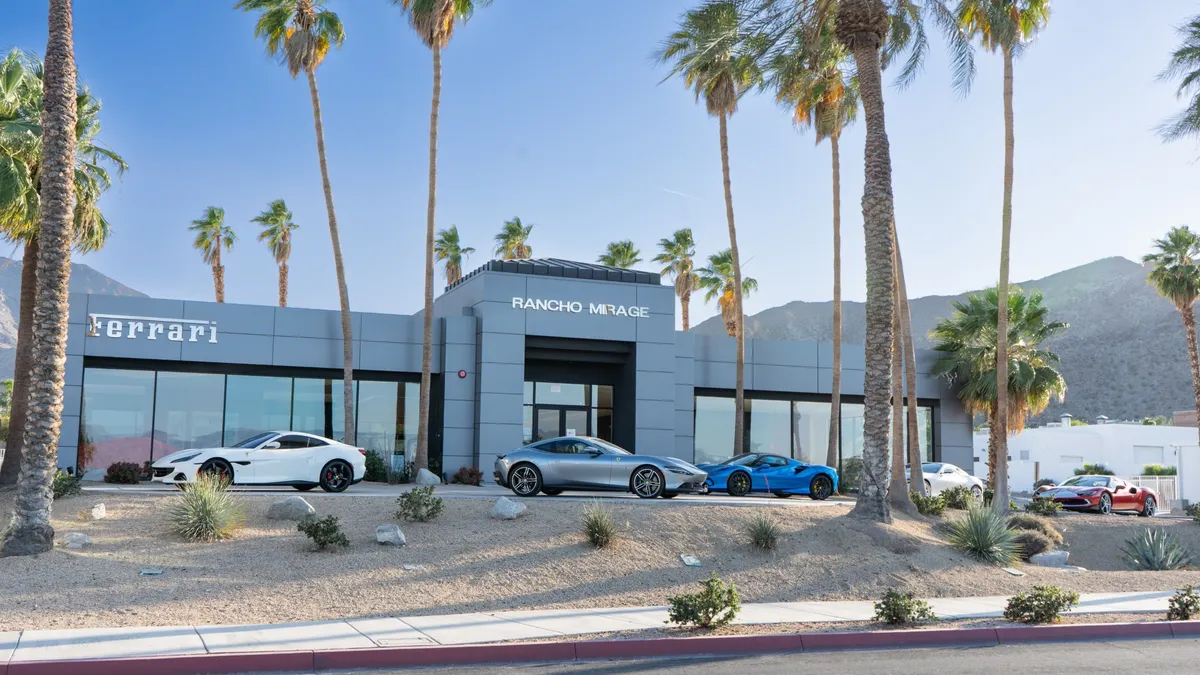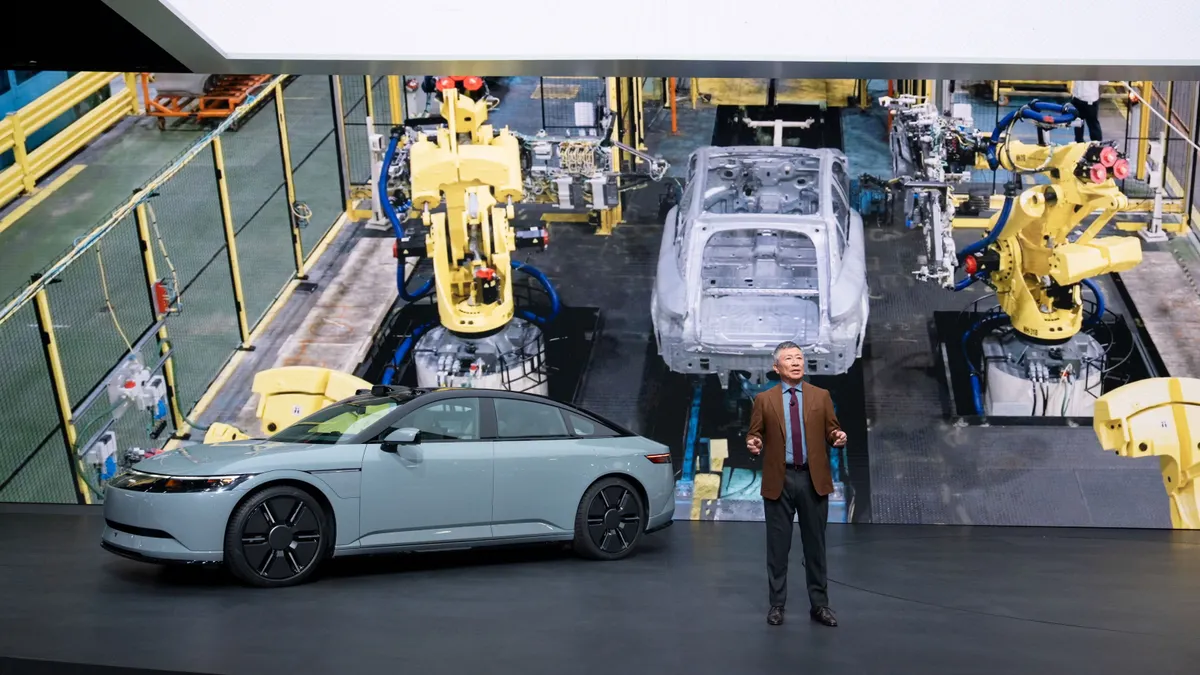Editor's note: This story is part of the WardsAuto digital archive, which may include content that was first published in print, or in different web layouts.
A convincing case can be made that brakes are the most important piece of safety equipment on vehicles today.
Airbags and seatbelts save lives, too, but not in everyday driving. It’s possible to drive a car without seatbelts and airbags, but not without brakes. Every time the accelerator is pressed to move a vehicle, stepping on the brake pedal is necessary to stop it, proving that mobility truly is a 2-way street.
As the transportation sector evolves to include all-electric and plug-in hybrid powertrains, the method of bringing a vehicle to a stop remains the same as it’s been for decades – using hydraulic fluid to actuate caliper-enabled disc brakes or old-style drum brakes.
Because every vehicle needs stoppers and the fact that modern EVs and hybrids use regenerative brakes to pump energy back to the battery for extended range, the brake sector would appear to be a safe place to do business long-term.
Hardly. Delphi left the segment three years ago and Bosch is in the process of leaving, illustrating the point that even a critical safety device can be commoditized and put cost pressures on even the most powerful suppliers.
Meanwhile, two other major players, TRW and Continental, remain firmly entrenched, with no plans to exit. Other smaller players, such as Brembo and Akebono, are growing their share of the market.
Nearly five years ago, a Bosch executive admitted in an interview with WardsAuto that the German supplier’s foundation-brake business (calipers, discs, drum brakes and parking brakes) was losing money.
Two years later, Bosch sold its North American foundation-brake operations to Japan’s Akebono. And now, Bosch is preparing to unload the rest of its global original-equipment foundation-brake unit to New York-based private-equity firm KPS Capital Partners.
If the deal goes through this spring, KPS will control 20 locations, including 15 manufacturing sites, in Europe, the Asia/Pacific and South America that employ 5,200 people and generated 2010 sales of E850 million ($1.1 billion).
Bosch wasn’t alone.
As part of its fire sale to exit bankruptcy, Delphi sold its North American brake components, machining and assembly assets to TRW in early 2008 for $40 million.
A year later, Delphi unloaded what was left of its global brake business to China’s Beijing West Industries in a $100 million deal that included the remainder of Delphi’s global suspension business.
“Delphi doesn’t exist as a global player anymore. Maybe they never were,” says Josef Pickenhahn, TRW’s vice president-braking engineering.
Delphi’s departure from the brake market worked out well for TRW. “I hired some very good Delphi engineers,” he says. “They had some excellent people.”
TRW market data ranks rival Continental as the world’s No.1 producer of complete systems, including foundation brakes, actuation components (vacuum booster and master cylinder) and the electronics that enable antilock brakes and stability control.
Filling out the sector are No.2 Bosch, with its heavy emphasis on the electronics side, and No.3 TRW.
But in the worldwide market specifically for foundation brakes, TRW ranks No.1, followed by Continental, Japan’s ADVICS and Akebono.
In NAFTA, Akebono occupies the No.1 position for disc and drum brakes, with a sizable 38% of the market, according to IHS Automotive data for 2011. TRW is No.2 with16%, followed by Mando (11%); Hitachi (7%); Brembo (7%); Continental (8%); and ADVICS (6%).
IHS projects Akebono will remain No.1 through 2017, while Mando takes the No.2 slot from TRW.
An industry veteran, Pickenhahn says Bosch struggled in the foundation-brake business because it never was core to the company.
It was after Bosch had pioneered ABS and ESC that Germany’s largest supplier entered the brake sector in earnest through its 1996 acquisition of AlliedSignal’s global brake operations.
“And they probably never fell in love with (the brake business) in such a way that they really understood it,” Pickenhahn says. “Bosch is a wonderful, absolutely great electronics company. That’s where their knowledge was and is, and that’s where they are strongest. Maybe they didn’t take the foundation brake as seriously as we do.”
Unlike Bosch, TRW finds the brake business profitable. “Our CEO wouldn’t allow us to be in the business if it is not profitable,” Pickenhahn says. “I think we have a very deep knowhow in that seemingly trivial product. But it isn’t trivial. I’m pretty certain that foundation brakes, as friction brakes, are here to stay for the next decade.”
Like TRW, Continental says it has no intention of bailing from the brake market, a point driven home by Ralf Cramer, executive board member and head of Continental’s Chassis & Safety division, at a media dinner during January’s North American International Auto Show.
“We won’t exit the foundation-brake business,” Cramer said at the time. “We will stay in it very strongly.”
Continental views foundation brakes as “an important and strategic element” that serves as a building block for overall growth, says Peter Laier, Continental’s executive vice president-hydraulic brake systems, in an email to WardsAuto.
As Bosch bows out, Laier views this as an excellent opportunity to leverage its competitive edge with expertise all the way from the brake pedal to the controls to the hardware and even to the road, via Continental’s tire business.
“This is giving us the opportunity to supply full brake systems out of one hand, as well as optimized brake components or subsystems for different market needs using our worldwide expertise on foundation brakes,” Laier says.
On the other hand, Laier agrees with Bosch’s assertion that it can remain a vital player in electronic-intensive active safety and other collision-avoidance technologies now emerging, even without producing foundation brakes.
In an email to WardsAuto, Bosch executives describe foundation brakes as “technically already very mature. The necessary advancements for increasing driver and passenger safety will come from the area of safety and assistance systems. Because studies show that the majority of all accidents are caused by the driver, assisting the driver is key.”
Which explains Bosch’s focus on predictive emergency braking, lane-departure warning and stop-and-go adaptive cruise control.
Bosch says the brake business was losing money because of significant increases in material costs and because the supplier bet wrongly that auto makers would buy complete brake systems from a single source. In the brake sector, auto makers generally use components made by different suppliers, Bosch says.
The industry’s 2009 tailspin made the need for action at Bosch even more acute.
However, if the sale to KPS goes through as planned in the coming months, Bosch will keep a hand in the brake business by retaining boosters and aftermarket discs and pads, in addition to electronic controls.
Those operations, excluding aftermarket, employ 5,000 people at 22 locations in 13 countries.
Without providing details, Bosch confirms plans to cooperate with KPS in the future. “There are agreements for strategic alliances in areas such as technical developments, customer projects and the aftermarket,” Bosch tells WardsAuto.
Unlike Bosch, TRW does not view foundation brakes as mature and continues investing in the product line. “Despite our strong market-share position, we do believe that further growth in foundation brakes is possible,” Pickenhahn says.
For instance, he says TRW has found “tremendous success” with its new rear electric park brake, which is integrated into the caliper and also can be installed on front axles in case a customer wants to keep less-expensive drum brakes on the rear.
“We do not consider foundation brakes commodity products,” Pickenhahn says. “These systems are becoming more advanced and in many cases are highly engineered.”
TRW is developing a Future Brake System that integrates a fast-acting motor that can replace both the vacuum booster and the electronic stability control module, saving 9 lbs. (4 kg). The system uses a pedal simulator to determine how much brake force to apply, based on the driver’s input, and can respond twice as fast as conventional brakes, Pickenhahn says.
The first generation of this system appears in General Motors’ 2-mode hybrid SUVs, as well as the Chevrolet Volt and Opel Ampera extended-range electric vehicles.
Although this brake-by-wire system can work with gasoline-powered vehicles, TRW says an important application will be electric vehicles because they lack internal-combustion engines, which generate the vacuum necessary to actuate conventional hydraulic brakes.
Pickenhahn expects the next generation of the system will go into production in 2015, and he hopes it will achieve cost parity with conventional brake systems within three years of launch.
He says next-generation brake systems can help improve fuel efficiency by reducing weight and residual torque, and they factor heavily into the future of automatic emergency braking.
In addition, caliper styling is becoming more important as wheels get larger and often expose more internal components, Pickenhahn says.
No brake supplier is better positioned for this aspect of growth than Italy’s Brembo, whose distinctive calipers – often fire-red – are instantly recognizable on the world’s most cherished high-performance cars, from Formula 1 racers and Ferraris to the Chevrolet Corvette ZR1 and Ford Mustang Boss 302.
Brembo’s strategy, although previously concentrated on exclusive high-end European vehicles, is to branch out and achieve higher volumes with less expensive vehicles, while maintaining a firm grip on its motorsports expertise.
For instance, the all-new ’13 Hyundai Genesis coupe will feature lightweight Brembo brakes, as will the new Cadillac ATS and XTS sedans. To support the Cadillac business, Brembo has set up its first U.S. caliper plant, in Homer, MI.
Two years ago, Brembo opened a technical center and North American headquarters in Plymouth, a suburb of Detroit, cementing its commitment to becoming a global player in the brake market. Brembo also supplies brakes (offered as an option package) for the Ford Mustang GT and Shelby GT500, and the supplier says other high-performance programs are in development.
While some players in the sector focus heavily on electronics, Brembo says it is happy to stick with what it knows best: calipers, discs and friction materials.
So even though Bosch and Delphi have slammed on the brakes, Brembo, TRW, Continental and a few others are charging ahead.



















